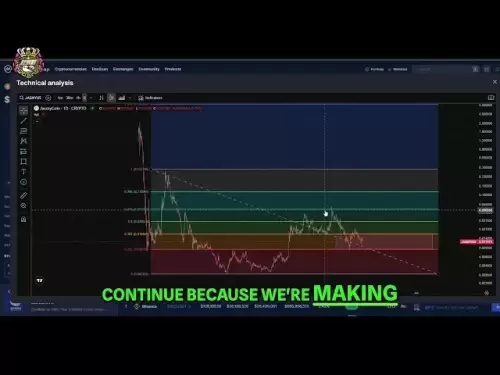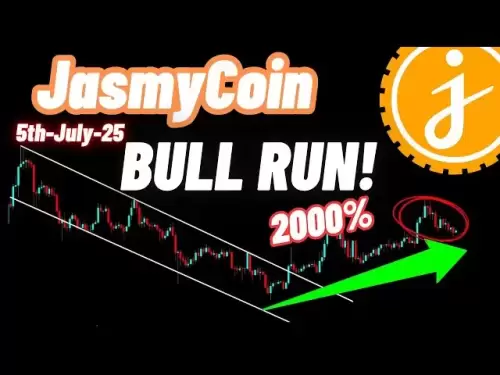-
 Bitcoin
Bitcoin $108,017.2353
-0.81% -
 Ethereum
Ethereum $2,512.4118
-1.58% -
 Tether USDt
Tether USDt $1.0002
-0.03% -
 XRP
XRP $2.2174
-1.03% -
 BNB
BNB $654.8304
-0.79% -
 Solana
Solana $147.9384
-1.76% -
 USDC
USDC $1.0000
-0.01% -
 TRON
TRON $0.2841
-0.76% -
 Dogecoin
Dogecoin $0.1636
-2.09% -
 Cardano
Cardano $0.5726
-1.72% -
 Hyperliquid
Hyperliquid $39.1934
1.09% -
 Sui
Sui $2.9091
-0.59% -
 Bitcoin Cash
Bitcoin Cash $482.1305
0.00% -
 Chainlink
Chainlink $13.1729
-1.54% -
 UNUS SED LEO
UNUS SED LEO $9.0243
-0.18% -
 Avalanche
Avalanche $17.8018
-1.90% -
 Stellar
Stellar $0.2363
-1.69% -
 Toncoin
Toncoin $2.7388
-3.03% -
 Shiba Inu
Shiba Inu $0.0...01141
-1.71% -
 Litecoin
Litecoin $86.3646
-1.98% -
 Hedera
Hedera $0.1546
-0.80% -
 Monero
Monero $311.8554
-1.96% -
 Dai
Dai $1.0000
-0.01% -
 Polkadot
Polkadot $3.3473
-2.69% -
 Ethena USDe
Ethena USDe $1.0001
-0.01% -
 Bitget Token
Bitget Token $4.3982
-1.56% -
 Uniswap
Uniswap $6.9541
-5.35% -
 Aave
Aave $271.7716
0.96% -
 Pepe
Pepe $0.0...09662
-1.44% -
 Pi
Pi $0.4609
-4.93%
What are the staking benefits of Kraken? What currencies are supported?
Staking on Kraken lets you earn passive income on crypto like ETH, ADA, and DOT with high reward rates and ease of use, though market volatility and lockup periods are risks to consider.
Apr 28, 2025 at 12:01 am
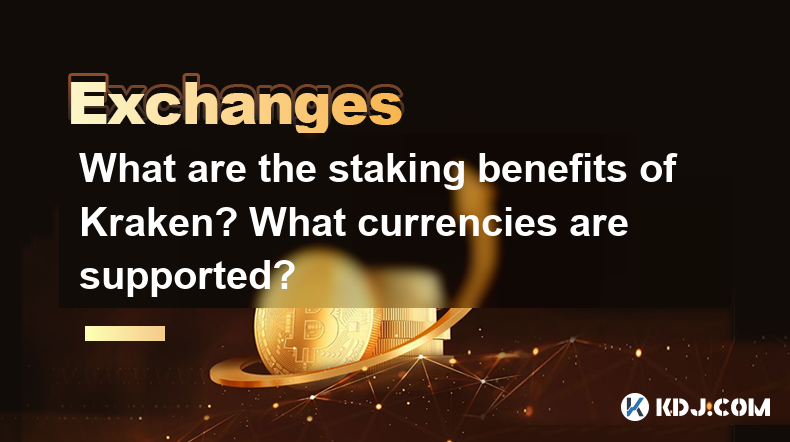
Staking has become a popular way for cryptocurrency holders to earn passive income on their assets. Kraken, one of the leading cryptocurrency exchanges, offers a staking service that allows users to earn rewards on their holdings. In this article, we will explore the benefits of staking on Kraken, the currencies supported, and how you can start staking today.
What is Staking on Kraken?
Staking on Kraken involves holding specific cryptocurrencies in your Kraken account to support the operations of the blockchain network. In return, you earn rewards in the form of additional cryptocurrency. Kraken facilitates this process by automatically staking your eligible assets and distributing the rewards directly to your account.
Benefits of Staking on Kraken
Staking on Kraken comes with several advantages that make it an attractive option for crypto enthusiasts.
Earn Passive Income: One of the primary benefits of staking on Kraken is the opportunity to earn passive income. By holding supported cryptocurrencies in your Kraken account, you can receive regular rewards without needing to actively trade or manage your investments.
High Reward Rates: Kraken offers competitive reward rates for staking various cryptocurrencies. These rates can vary depending on the specific cryptocurrency and the network's current conditions, but they are generally designed to be attractive to stakers.
Ease of Use: Kraken makes the staking process straightforward and user-friendly. You don't need to set up your own nodes or manage complex technical processes. Simply hold the supported assets in your Kraken account, and the platform will handle the rest.
Security and Reliability: Kraken is known for its robust security measures and reliable service. When you stake your assets on Kraken, you can trust that your funds are protected by industry-leading security protocols.
Supported Currencies for Staking on Kraken
Kraken supports staking for a variety of cryptocurrencies, allowing users to diversify their staking portfolio. Some of the most popular currencies available for staking on Kraken include:
Ethereum (ETH): With the transition to Ethereum 2.0, staking ETH has become a popular way to participate in the network's upgrade and earn rewards.
Cardano (ADA): Cardano's proof-of-stake protocol allows users to stake ADA and contribute to the network's security and governance.
Polkadot (DOT): Staking DOT on Kraken enables you to participate in the Polkadot network and earn rewards for supporting its operations.
Tezos (XTZ): Tezos uses a proof-of-stake consensus mechanism, and staking XTZ on Kraken allows you to earn additional tokens while supporting the network.
Solana (SOL): Staking SOL on Kraken can provide high reward rates, making it an attractive option for those looking to maximize their staking returns.
Cosmos (ATOM): Staking ATOM on Kraken allows you to contribute to the Cosmos ecosystem and earn rewards in the process.
How to Start Staking on Kraken
Getting started with staking on Kraken is a simple process that can be completed in a few easy steps. Here’s how you can begin staking your assets:
Create a Kraken Account: If you don't already have a Kraken account, you'll need to sign up. Visit the Kraken website and follow the registration process, which will require you to provide some personal information and complete a verification process.
Deposit Supported Cryptocurrencies: Once your account is set up, deposit the cryptocurrencies you want to stake into your Kraken wallet. Make sure to deposit only the supported currencies listed above.
Enable Staking: Navigate to the staking section of your Kraken account. Here, you will see a list of your eligible assets for staking. Click on the asset you want to stake and enable staking for that cryptocurrency.
Monitor Your Rewards: Once you've enabled staking, Kraken will automatically begin staking your assets and distributing rewards to your account. You can monitor your staking rewards in the Kraken interface, which will show you the amount of rewards you've earned and the current reward rate.
Understanding Staking Rewards and Rates
Staking rewards on Kraken are influenced by several factors, including the specific cryptocurrency, the network's current conditions, and the total amount of assets staked. Reward rates can fluctuate over time, so it's important to keep an eye on the rates offered by Kraken and adjust your staking strategy accordingly.
For example, Ethereum staking rewards are determined by the Ethereum 2.0 network's validator rewards, which are distributed to stakers based on the amount of ETH they have staked. Similarly, Cardano's staking rewards are calculated based on the network's staking pool performance and the amount of ADA staked.
Risks and Considerations of Staking on Kraken
While staking on Kraken offers numerous benefits, it's important to be aware of the potential risks and considerations involved.
Market Volatility: The value of the cryptocurrencies you stake can fluctuate, which means the value of your rewards can also change. It's important to consider the potential impact of market volatility on your staking returns.
Lockup Periods: Some cryptocurrencies may have lockup periods associated with staking, during which you cannot withdraw your staked assets. Make sure to understand the lockup periods for the cryptocurrencies you are staking.
Network Changes: Changes to the underlying blockchain network can affect staking rewards and rates. Stay informed about any updates or changes to the networks of the cryptocurrencies you are staking.
Platform Risks: While Kraken is known for its security, there is always a risk associated with holding assets on a centralized exchange. Consider the potential risks of using a third-party platform for staking.
Frequently Asked Questions
Q: Can I unstake my assets at any time on Kraken?
A: The ability to unstake your assets on Kraken depends on the specific cryptocurrency and its associated lockup periods. Some cryptocurrencies allow you to unstake at any time, while others may require you to wait until the lockup period ends. Always check the specific terms for the cryptocurrency you are staking.
Q: Are there any fees associated with staking on Kraken?
A: Kraken does not charge any fees for staking. However, you may be subject to network fees when depositing or withdrawing your staked assets. Always review the fee structure for the specific cryptocurrency you are staking.
Q: How often are staking rewards distributed on Kraken?
A: Staking rewards on Kraken are typically distributed on a regular basis, which can vary depending on the specific cryptocurrency. For example, Ethereum staking rewards are distributed daily, while Cardano staking rewards are distributed every epoch (approximately every 5 days). Check the specific distribution schedule for the cryptocurrency you are staking.
Q: Can I stake multiple cryptocurrencies on Kraken at the same time?
A: Yes, you can stake multiple supported cryptocurrencies on Kraken simultaneously. Simply enable staking for each cryptocurrency you want to stake, and Kraken will handle the process for each asset independently.
Disclaimer:info@kdj.com
The information provided is not trading advice. kdj.com does not assume any responsibility for any investments made based on the information provided in this article. Cryptocurrencies are highly volatile and it is highly recommended that you invest with caution after thorough research!
If you believe that the content used on this website infringes your copyright, please contact us immediately (info@kdj.com) and we will delete it promptly.
- Little Pepe: The Meme Coin Primed for Investment Potential?
- 2025-07-06 04:30:12
- Hong Kong's Stablecoin Licensing Regime: A New Era for Digital Assets
- 2025-07-06 04:30:12
- PEPE, BONK, and Remittix: Meme Coins Meet Real-World Utility
- 2025-07-06 02:30:13
- Score Big This Weekend with BetMGM Bonus Code for MLB Games
- 2025-07-06 02:50:13
- PENGU Token's eToro Debut and Weekly Surge: What's Driving the Hype?
- 2025-07-06 02:30:13
- Singapore's Crypto Crackdown: Laundering, Licenses, and Lessons
- 2025-07-06 02:50:13
Related knowledge
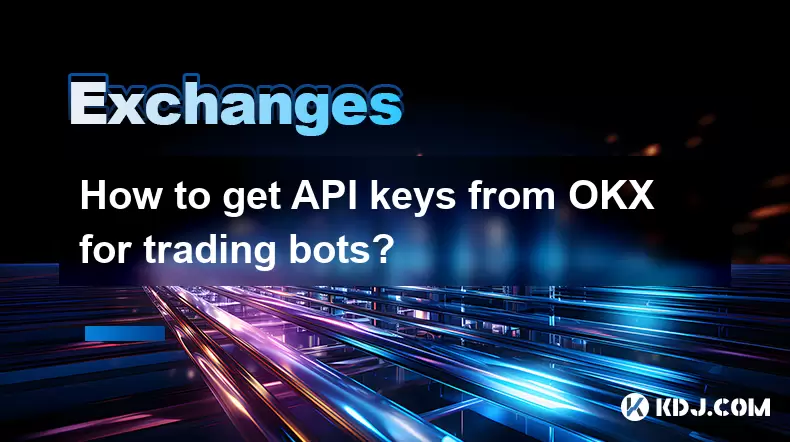
How to get API keys from OKX for trading bots?
Jul 03,2025 at 07:07am
Understanding API Keys on OKXTo interact with the OKX exchange programmatically, especially for building or running trading bots, you need to obtain an API key. An API (Application Programming Interface) key acts as a secure token that allows your bot to communicate with the exchange's servers. On OKX, these keys come with customizable permissions such ...
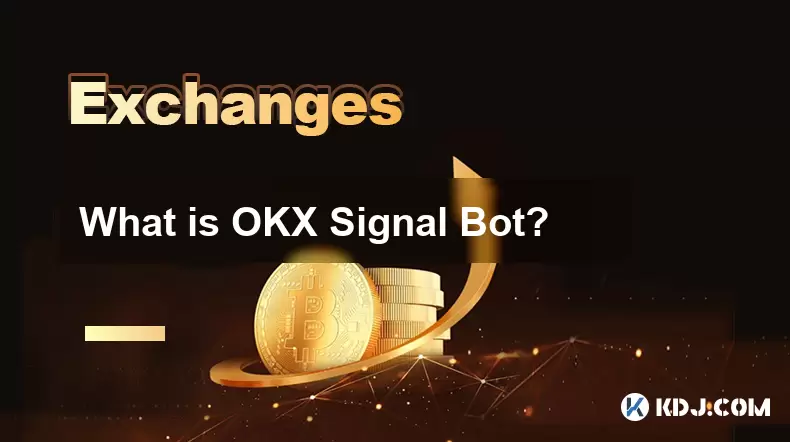
What is OKX Signal Bot?
Jul 02,2025 at 11:01pm
Understanding the Basics of OKX Signal BotThe OKX Signal Bot is a feature within the OKX ecosystem that provides users with automated trading signals and execution capabilities. Designed for both novice and experienced traders, this bot helps identify potential trading opportunities by analyzing market trends, technical indicators, and historical data. ...
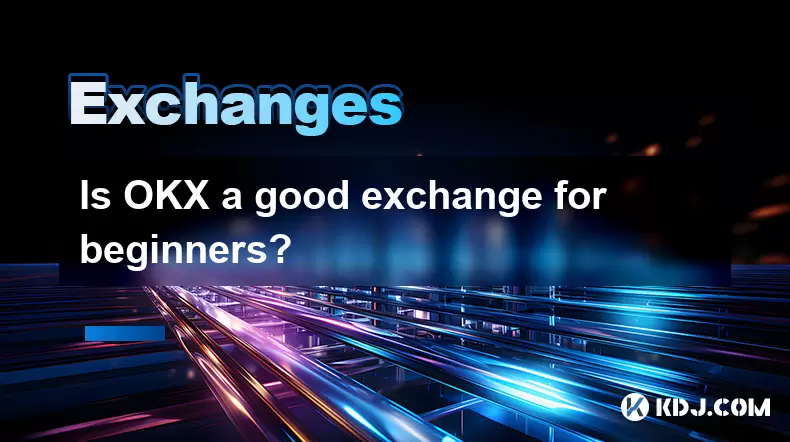
Is OKX a good exchange for beginners?
Jul 03,2025 at 05:00pm
What Is OKX and Why Is It Popular?OKX is one of the leading cryptocurrency exchanges globally, known for its robust trading infrastructure and a wide variety of digital assets available for trading. It supports over 300 cryptocurrencies, including major ones like Bitcoin (BTC), Ethereum (ETH), and Solana (SOL). The platform has gained popularity not onl...
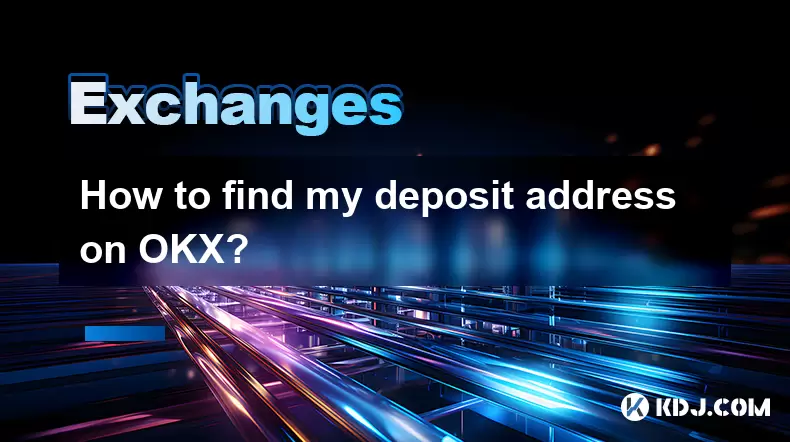
How to find my deposit address on OKX?
Jul 06,2025 at 02:28am
What is a Deposit Address on OKX?A deposit address on OKX is a unique alphanumeric identifier that allows users to receive cryptocurrencies into their OKX wallet. Each cryptocurrency has its own distinct deposit address, and using the correct one is crucial to ensure funds are received properly. If you're looking to transfer digital assets from another ...
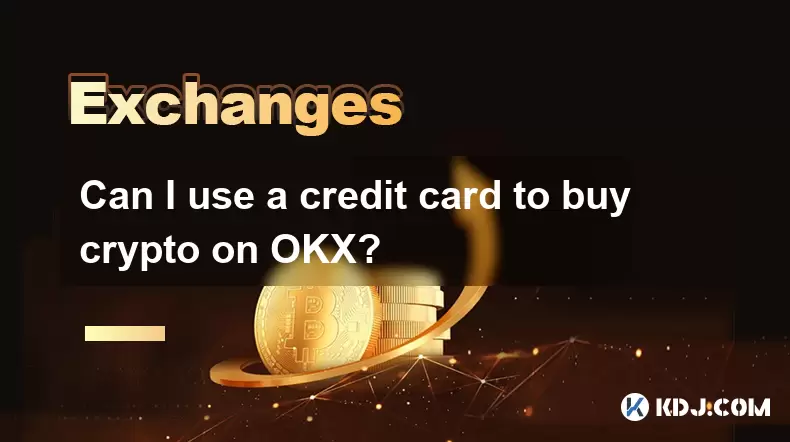
Can I use a credit card to buy crypto on OKX?
Jul 04,2025 at 04:28am
Understanding OKX and Credit Card PaymentsOKX is one of the leading cryptocurrency exchanges globally, offering a wide range of services including spot trading, derivatives, staking, and more. Users often wonder whether they can use a credit card to buy crypto on OKX, especially if they are new to the platform or looking for quick ways to enter the mark...
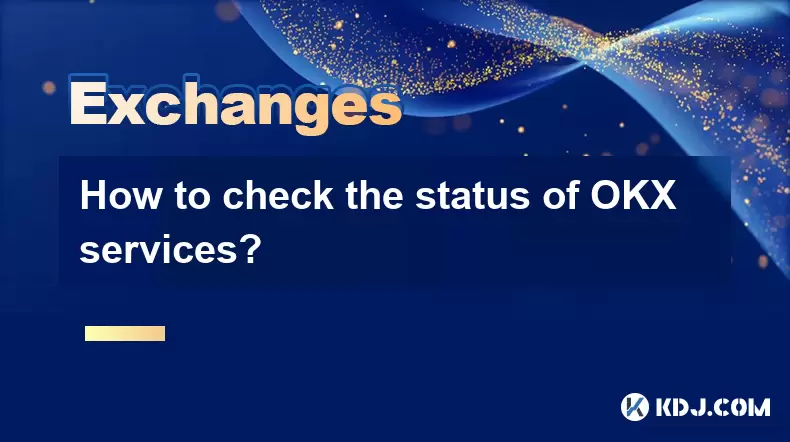
How to check the status of OKX services?
Jul 02,2025 at 11:14pm
What is OKX, and Why Checking Service Status Matters?OKX is one of the world’s leading cryptocurrency exchanges, offering services such as spot trading, futures trading, staking, and more. With millions of users relying on its platform for daily transactions, it's crucial to know how to check the status of OKX services. Downtime or maintenance can affec...

How to get API keys from OKX for trading bots?
Jul 03,2025 at 07:07am
Understanding API Keys on OKXTo interact with the OKX exchange programmatically, especially for building or running trading bots, you need to obtain an API key. An API (Application Programming Interface) key acts as a secure token that allows your bot to communicate with the exchange's servers. On OKX, these keys come with customizable permissions such ...

What is OKX Signal Bot?
Jul 02,2025 at 11:01pm
Understanding the Basics of OKX Signal BotThe OKX Signal Bot is a feature within the OKX ecosystem that provides users with automated trading signals and execution capabilities. Designed for both novice and experienced traders, this bot helps identify potential trading opportunities by analyzing market trends, technical indicators, and historical data. ...

Is OKX a good exchange for beginners?
Jul 03,2025 at 05:00pm
What Is OKX and Why Is It Popular?OKX is one of the leading cryptocurrency exchanges globally, known for its robust trading infrastructure and a wide variety of digital assets available for trading. It supports over 300 cryptocurrencies, including major ones like Bitcoin (BTC), Ethereum (ETH), and Solana (SOL). The platform has gained popularity not onl...

How to find my deposit address on OKX?
Jul 06,2025 at 02:28am
What is a Deposit Address on OKX?A deposit address on OKX is a unique alphanumeric identifier that allows users to receive cryptocurrencies into their OKX wallet. Each cryptocurrency has its own distinct deposit address, and using the correct one is crucial to ensure funds are received properly. If you're looking to transfer digital assets from another ...

Can I use a credit card to buy crypto on OKX?
Jul 04,2025 at 04:28am
Understanding OKX and Credit Card PaymentsOKX is one of the leading cryptocurrency exchanges globally, offering a wide range of services including spot trading, derivatives, staking, and more. Users often wonder whether they can use a credit card to buy crypto on OKX, especially if they are new to the platform or looking for quick ways to enter the mark...

How to check the status of OKX services?
Jul 02,2025 at 11:14pm
What is OKX, and Why Checking Service Status Matters?OKX is one of the world’s leading cryptocurrency exchanges, offering services such as spot trading, futures trading, staking, and more. With millions of users relying on its platform for daily transactions, it's crucial to know how to check the status of OKX services. Downtime or maintenance can affec...
See all articles





















